- Home
- Parnell Hall
Puzzled to Death Page 30
Puzzled to Death Read online
Page 30
“Except for one other person who’s figured it out. Figured it out while he sat in jail while Mrs. Roth was being killed. Figured it out and plotted his revenge.
“So, as soon as he got out of jail he checked his facts, confirmed his theories, laid his plans, and—”
Cora Felton’s denouement was cut off by a savage, almost inhuman cry as, with a snarl of rage, Jessica Thornhill sprang from her chair and, clawing and scratching, hurled herself on her husband’s killer, Joey Vale.
CORA FELTON SAT ON THE FRONT STEPS OF THE TOWN hall, smoking a cigarette. She sat alone—everyone else was inside watching the three finalists, Marty Haskel, Ned Doowacker, and Zelda Zisk, compete to solve the last puzzle. Through the closed door Cora could faintly hear the voice of Harvey Beerbaum doing the commentary over the loudspeaker. Cora smiled slightly, took a drag on her cigarette, blew out the smoke. It was cold on the steps, and Cora tugged her wool coat around her.
The door opened and Sherry Carter slipped out and sat on the steps next to her aunt.
“How you doing?” she asked.
“Okay. How’s it going in there?”
“Nip and tuck,” Sherry said. “They’re pretty evenly matched. Marty Haskel’s working the upper left corner, Zelda the lower right. Doowacker’s sort of all over the place.”
“How’s Harvey doing?”
“He’s rather dry and boring. You’d have been more fun.”
“Yeah, well, you can’t have everything.” Cora took a drag, blew out the smoke. “If it isn’t over, why are you out here?”
“I figure you got five or six minutes before Rick Reed aims a camera at you. I wonder what you’re gonna say.”
“I already said most of it.”
“Yes, but they’re gonna ask you about Thornhill’s crossword puzzle. Are you gonna tell them that it was meaningless, just part of your bluff?”
Cora grinned. “No, that’s the icing on the cake.”
“What do you mean?”
Cora dug in her purse, fished out the puzzle. “You know how you told me he created this puzzle with AutoFill, and that’s why it’s got bad words like Nahuatls in it? And the Presley quote is wrong? Well, that gave me the clue. Because Thornhill was supposed to be some hotshot constructor. So, why would he make a mistake like that? And why would he turn in an electronic puzzle? Because he was too distracted to do it himself. His mind was overloaded with the mechanics of a murder. The only part of the puzzle he did was the three long clues and the word sorry. Which was revealing too. From Paul Thornhill’s point of view, he’s just pulling phrases out of a bunch of fifties love songs to create a theme, but subconsciously he’s confessing. Not to the murder, but the infidelity. Which in his mind is worse and is uppermost in his thoughts. In the puzzle he’s confessing to Jessica. I mean, look at the song lyrics he pulled his quotes from. I ran all the way home, just to say I’m sorry. I’m sorry, so sorry, please accept my apology. Love is blind, and I was too blind to see. And I’m a fool, but I love you, dear, until the day I die. Kinda says it all.”
Cora blew a smoke ring. “And that’s the payoff. By the time I’m done explaining all that on TV, Mr. Smarty-Pants Beerbaum, who couldn’t tell anything from the puzzles, is going to have a hard time faulting me on my expertise.”
“I’ll be damned.” Sherry chuckled at the thought, then frowned. “There’s one thing I don’t understand. Why does Joey Vale leave the puzzle on the body? Has he figured out it means Thornhill’s Judy’s killer?”
“Not at all. He’s not that smart. But he’s not that dumb either. He realizes he has an airtight alibi for the Roth killing. So if he can kill Thornhill and tie it to the other murders, he will have committed the perfect crime. The problem is Thornhill’s not local, so there’s no connection. The connection, of course, is Judy, but Joey can’t advance that theory without exposing his motive for murder.
“So how does he tie the one killing to the others? First, he makes it a strangling. Second he kills him at our house to imply local knowledge. Third, he shoves that crossword puzzle in his mouth. I bet he enjoyed doing it.”
“Why do you say that?”
Cora sighed. “Because Joey really loved his wife. I know you won’t understand. You were in an abusive relationship, you wanted out of it, you got out as quick as you could. And rightfully so. But Joey and Judy’s relationship was something else. Everyone says he beat her up. But everyone says that after her murder. I saw her body in the morgue, and there’s not a bruise on it. No, I think Joey and Judy were a couple who lived for histrionics. She’d have an affair, then he’d find out and fly into a rage, then she’d cry and say she was sorry, then he’d forgive her. And this would happen again and again, but, basically, they really loved each other. So when Thornhill killed Judy, Joey had to strike back.”
“And how’d he know Thornhill was the killer?”
“He didn’t. He thought it was Billy Pickens. Just like everyone else did.”
“Cora—”
“I mean at first. Joey gets out of jail and starts following Billy, looking for a chance to do him in. Only Billy comes to our house to ask for help. That doesn’t jibe with Joey’s theory of the crime—why would a guilty man do that? So Joey figures it must be Thornhill after all. He drops Billy, hightails it over to Thornhill’s bed-and-breakfast. I don’t know what pretext he would have used to get Thornhill outside—faked a phone call from the tournament committee, most likely—but he doesn’t have to. Joey no sooner gets there than Thornhill goes out for booze. Joey follows him to the liquor store, accosts him in the parking lot. Thornhill is terrified. He killed the guy’s wife. And Joey knows.
“Of course, Thornhill denies it. Tries to stonewall. To his surprise, Joey doesn’t hit him. Instead, he tells Thornhill to follow him to our house. To let me hear his story.
“That seems plausible to Thornhill. He knows I’ve been helping with Chief Harper’s investigation. He buys it. He drives to our house, trying to think of what to say.
“Of course, we’re not there. Not after Billy Pickens lit a fire under us. We’re out investigating. As Joey Vale figured.
“So Joey and Paul Thornhill drive up our driveway. Thornhill, lulled into a sense of false security, climbs out of his car, and Joey promptly hits him on the head. He strangles him, drags him out in the backyard, and sits him at the picnic table. He wants this murder tied to the other two, for which he has a perfect alibi. He figures the combination of strangling him and killing him at our house will do it.
“He drives Thornhill’s car down the driveway and parks it on the road, so it will be longer before anyone finds the body. On the front seat of the car is a briefcase full of crossword puzzles. This is too good to pass up. The other murders came with crossword-puzzle clues. So why not this one? He takes the puzzle, shoves it in the mouth of his wife’s lover.”
“And how did he know Thornhill was her lover?”
“She told him.”
“You’re kidding.”
“How do you think Joey always knew who she was sleeping with? You think the neighbors told him? No way. He’d accuse her of having a lover, get her to admit it and tell him who it was. He knew about Thornhill, same as he knew about Billy Pickens.”
“You gonna tell Rick Reed about Billy Pickens?”
“Hell, no. I’m just telling you. I can leave him out of the story just fine.”
“I still don’t understand about the crossword puzzle. You say Joey left it on Thornhill because there were crossword puzzles found on the other bodies. Well, maybe Joey found his wife’s doodle. But if he didn’t kill Mrs. Roth, how could he know about the puzzle found with her?”
“I kind of hate to tell you.”
Sherry frowned. Then her eyes widened. “Oh, no!”
Cora shrugged. “Sorry. You told Aaron. He may have promised not to print it, but he’s a newsman, and facts are bargaining chips. And you know he wanted to ace Rick Reed out on Becky Baldwin’s story.”
“So Aaron told Becky
, and she told Joey,” Sherry said in disgust. “That’s how Joey knew.”
Cora nodded. “Only way it fits.”
From inside came cheers and the thunder of applause.
“Guess someone won,” Sherry said. “I better go check who.”
“No need,” Cora said. “From the sound of the cheer, it’s a hometown boy.”
Becky Baldwin came crashing out the door, a huge smile on her face. “He won, can you believe it? Marty won!” She swooped down on Cora. “Rick’s just shooting a question or two with Marty, then he’ll be out to interview you.”
“You still Joey Vale’s attorney?”
“Yeah. Why?”
“You seem rather pleased with the turn of events. Of course, I suppose it means work.”
Becky gave her a look of reproach. “Please. The thought never crossed my mind.”
“And yet you’re out here lining me up for an interview to accuse your client of murder. Interesting.” Cora furrowed her brow. “Oh, of course. You figure his crime’s sympathetic, and you want to taint the jury pool.”
“Heaven forbid,” Becky said.
Marty Haskel came out, holding the first-place trophy. If winning it pleased him any, Cora wouldn’t have known it. He looked cranky as ever.
Marty spotted Cora sitting on the step. He wandered over to her, stuck the trophy under his arm, and hunched the collar of his red and black hunting jacket up against the cold. “Nice stunt, lady,” he grunted.
Cora acknowledged the grudging compliment with a stone-faced nod. She dangled her cigarette out the side of her mouth and gave him her best John Wayne. “Nice trophy, mister.”
Marty nodded back. Cora couldn’t be sure, but she had the faint impression the corners of his lips might have curved up ever so slightly.
Harvey Beerbaum came out and saw them together. He walked up and said rather stiffly, “Congratulations.” It wasn’t clear whether he was talking to Marty or Cora.
Rick Reed and the camera crew came out the door. “Ah, there you are,” Rick said. He pushed by Harvey Beerbaum as if he wasn’t even there. “Miss Felton, I need to ask you a few questions. You too, Mr. Haskel. Now, let’s see. Where can we shoot it? Is this a good angle? If we can come down two steps, swing around, get the people coming out in the background. If you wouldn’t mind answering a few questions?”
“Anything for you,” Cora said sweetly.
Aaron Grant came out, saw Cora preparing to be filmed. He sauntered over to Sherry, smiled. “Well, your aunt really pulled a rabbit out of the hat this time. I have to admit, before she got up to speak, I had no idea what she was going to say.”
Sherry shot a glance at Harvey Beerbaum, who was hanging around hoping to get in on the filming. She motioned Aaron close, lowered her voice. “Frankly, neither did she.”
Aaron’s eyebrows shot up. “Oh?”
“Off the record,” Sherry said firmly.
“Oh, absolutely,” Aaron agreed.
After a pause, Sherry said, “Like Mrs. Roth’s puzzle.”
Aaron scowled. “What?”
“Cora has an interesting theory about why Joey Vale stuck that puzzle in Paul Thornhill’s mouth. He wanted to tie the killings together, and he knew the other two had come with puzzles. He knew about Judy’s puzzle because he’d seen it himself. But he was in jail when Mrs. Roth was killed. He could only have learned about her puzzle from his lawyer.”
“Sherry—”
“One wonders where she might have learned it, when so few people knew.”
Aaron looked deeply troubled. “Sherry. Reporters barter information. It’s our stock in trade.”
“So you bartered the information to Becky Baldwin. Just what did you get in return?”
“Confirmation Joey saw his wife’s doodle.”
“And what did you get in return for the bit about Billy Pickens and his wife swapping cars?”
Aaron looked wounded. “No one knows that. The way things stand, no one ever will.”
“Even Becky Baldwin?”
“Especially Becky. She’s defending Joey Vale.”
“Which will make her newsworthy. If that ever was your prime concern.”
Before Aaron could answer, the door banged open and his parents came out. Like everyone else, they were talking animatedly about the murders.
“He collects,” Mr. Grant said, shaking his head. “Can you believe that? He’s a killer, but he didn’t kill her, so he collects on his policy. Double indemnity, since she was murdered. Isn’t that the damnedest thing?”
“Oh, listen to him,” Mrs. Grant said fondly. “As if it were coming out of his own pocket. I mean, really.”
“It’s an interesting angle,” Aaron said, “but can it keep for a second?”
He put his hands on their shoulders, guided them across the steps to where Sherry was standing.
Aaron stood next to Sherry, put his arm around her.
“Mom. Dad,” he said. He smiled at Sherry, then at his parents.
“There’s someone I want you to meet.”
About the Author
PARNELL HALL is the author of the acclaimed Stanley Hastings mystery novels and the Steve Winslow courtroom dramas, as well as three Puzzle Lady mysteries, A Clue for the Puzzle Lady, Last Puzzle and Testament, and Puzzled to Death. His fourth, A Puzzle in a Pear Tree, is due out from Bantam Books in December 2002. Nominated for the Edgar, the Shamus, and the Lefty awards, he lives in New York City, where he is working on his fifth Puzzle Lady mystery, With This Puzzle I Thee Wed.
If you enjoyed Parnell Hall’s Puzzled to Death, you won’t want to miss any of the tantalizing Puzzle Lady mysteries!
Look for the latest, A Puzzle in a Pear Tree, in hardcover at your favorite bookstore in December 2002.
“NO, NO, NO,” RUPERT WINSTON CRIED, SILENCING THE PIANO, and vaulting up onto the stage with all the spry grace of a much younger man. Rupert tugged at his turtleneck, a habit he had when not particularly pleased. Which, in Cora Felton’s humble opinion, was almost all the time. In the few rehearsals she’d had, Cora had come to detest the “innovative and gifted” director, as the Bakerhaven Gazette had termed him, who had left the “stifling constraints of the Broadway stage” in order to “ply his craft in the liberating atmosphere of an enlightened village.”
Although no linguist, Cora Felton didn’t have to be hit over the head with a condescending remark to recognize one. Rupert Winston had Cora’s back up before she’d even met him. Being tapped to appear in Rupert’s Christmas pageant was the last thing in the world Cora Felton wanted. Had she been able to think of any polite way to get out of it, Cora would have done so.
Had she known what rehearsals would be like, an impolite way would have sufficed.
“Miss Felton.” Rupert Winston extracted his hand from his black turtleneck, entwined his long, slender fingers together, and rolled his steel gray eyes to the heavens, as if invoking the deities to witness his tribulations in dealing with mere mortals, and inferior ones at that. “You are a milkmaid. A hearty, robust milkmaid, fresh from the fields, sunny and bright and imbued with a lust for life. If you are to sing the solo line, I have to hear the solo line. You cannot mumble it into your sleeve.”
Cora Felton set down her wooden milking stool, fixed the director with an evil eye. She was sorely tempted to remind him that she hadn’t got a sleeve, this wasn’t the dress rehearsal, and her milkmaid costume had yet to be sewn.
Instead, Cora glanced around the stage, where the seven other maids-a-milking stood holding their stools. “You’re absolutely right, Rupert,” she said sweetly. “I’m totally wrong for this part. I’m sure any of the other milkmaids could do better. I understand completely why you’d wish to replace me.”
Rupert Winston looked shocked. “Miss Felton. Did I say any such thing? Of course not. You’re perfect for the part. It’s just a question of pulling a performance out of you.”
Cora bit back a groan. Were there any way to agree with this fool and get on w
ith it, Cora would have done so, but she knew from experience Rupert loved to pontificate. Under the guise of giving direction, he could run through his entire Broadway résumé at the drop of a hat. Already, she could see the other actors emerging from the wings to listen. They soon filled the stage. The piece was The Twelve Days of Christmas, complete with pipers piping, drummers drumming, and so on. Cora could barely calculate how many actors were in the show, let alone the odds of all of them ever doing it right.
“I’m not perfect for the part,” she protested. “I’m dead wrong for the part. I’m way too old. Just like the rest of your milkmaids—no offense, ladies—but your maids-a-milking should be rosy-cheeked country girls, in fetching peasant blouses.”
“You’re saying you can’t work without your costume?”
“No, I’m saying someone else should be wearing it. It’s just bad casting.” Cora pointed stage left, where her niece, Sherry Carter, stood in a cluster of nine attractive young women. “Look at your ladies dancing. They’re all young and pretty. They should be the lusty milkmaids, and we old biddies should be the refined ladies dancing.”
Rupert didn’t get mad. The director never got mad. Instead, he exhibited, as he always did, a tolerant amusement at the misguided views of the unenlightened.
“Yes, Miss Felton,” he replied. “That is how it is usually cast. Which is precisely why I have not done so here. This skit is deliberately ‘miscast,’ as you would characterize it, for, one would hope, humorous effect. Which, as you might have gathered, is the same reason for so many entrances and exits. Which is also why rehearsal time is so crucial. I hope I don’t have to spend too much of it reassuring you that you are ideal for your part.”
“I thought you were the one telling me I wasn’t doing it right,” Cora countered.
Rupert Winston chuckled. “Well, there is a huge difference between not doing it right and not being right for it. Trust me, you’re right for it.”
Harvey Beerbaum stuck his oar in, as the annoying, pedantic cruciverbalist was wont to do. “Come on, Cora,” he chided. “If I can be a lord-a-leaping, surely you can be a maid-a-milking.”

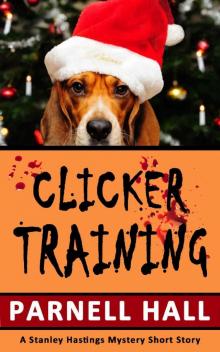 Clicker Training
Clicker Training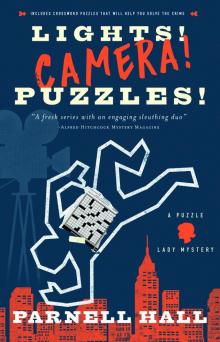 Lights! Camera! Puzzles!
Lights! Camera! Puzzles!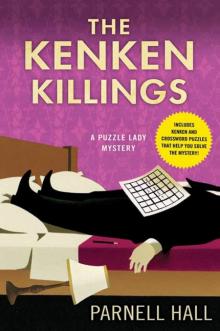 The KenKen Killings
The KenKen Killings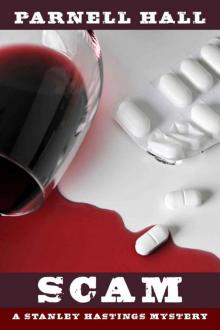 12-Scam
12-Scam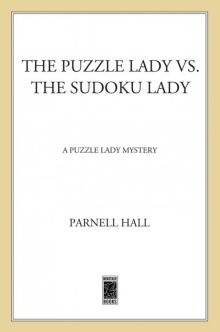 The Puzzle Lady vs. the Sudoku Lady
The Puzzle Lady vs. the Sudoku Lady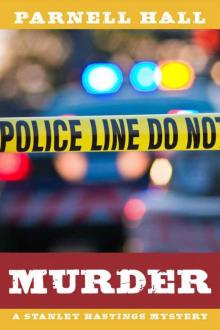 2 Murder
2 Murder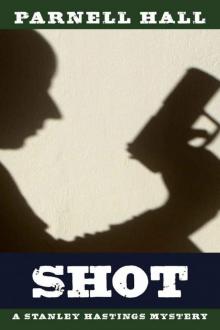 7 Shot
7 Shot You Have the Right to Remain Puzzled
You Have the Right to Remain Puzzled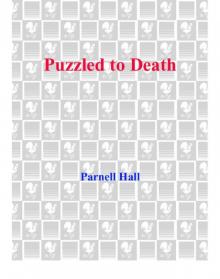 Puzzled to Death
Puzzled to Death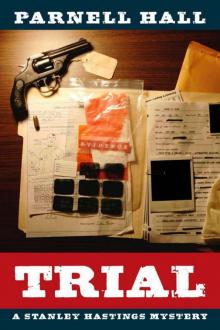 11-Trial
11-Trial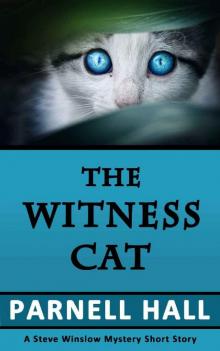 The Witness Cat (Steve Winslow Mystery)
The Witness Cat (Steve Winslow Mystery)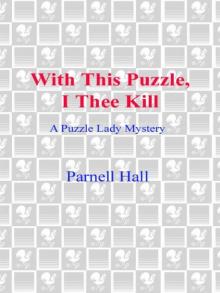 With This Puzzle, I Thee Kill
With This Puzzle, I Thee Kill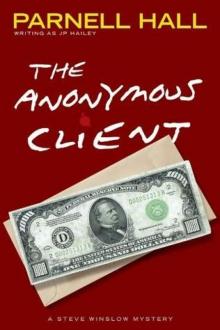 The Anonymous Client sw-2
The Anonymous Client sw-2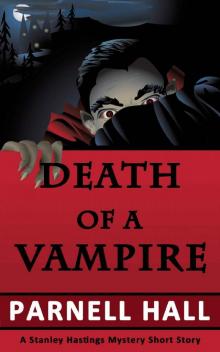 Death of a Vampire (Stanley Hastings Mystery, A Short Story)
Death of a Vampire (Stanley Hastings Mystery, A Short Story)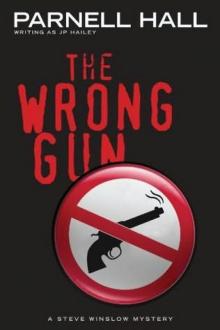 The Wrong Gun sw-5
The Wrong Gun sw-5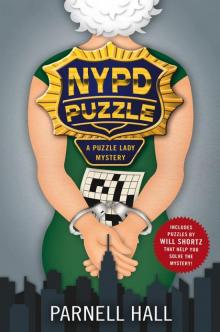 NYPD Puzzle
NYPD Puzzle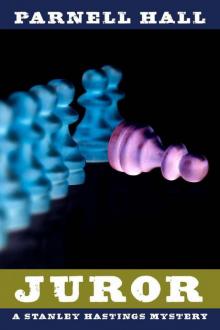 6 Juror
6 Juror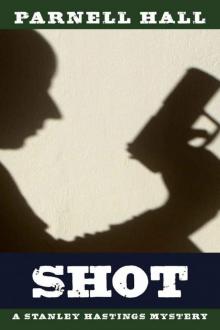 07-Shot
07-Shot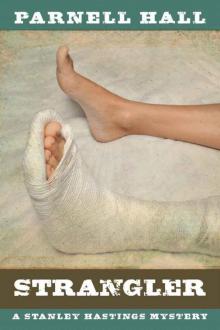 04-Strangler
04-Strangler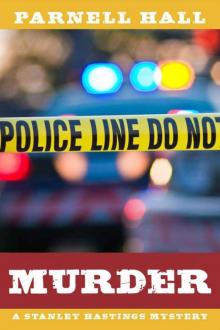 02-Murder
02-Murder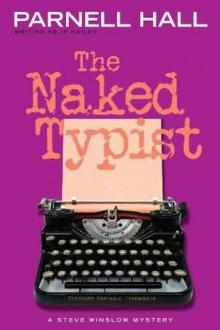 SW04 - The Naked Typist
SW04 - The Naked Typist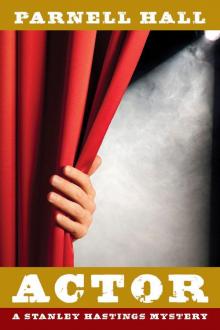 Actor
Actor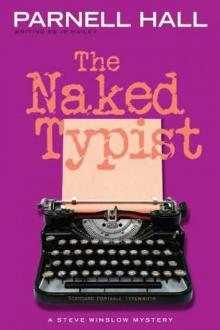 The Naked Typist sw-4
The Naked Typist sw-4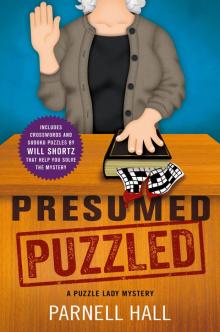 Presumed Puzzled
Presumed Puzzled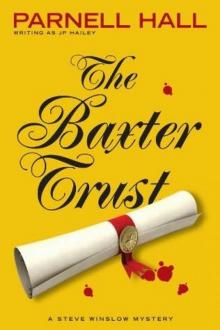 SW01 - The Baxter Trust
SW01 - The Baxter Trust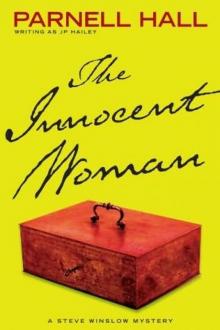 SW06 - The Innocent Woman
SW06 - The Innocent Woman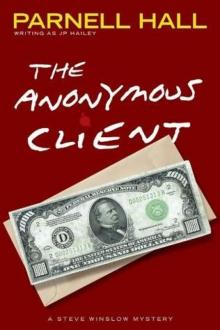 SW02 - The Anonymous Client
SW02 - The Anonymous Client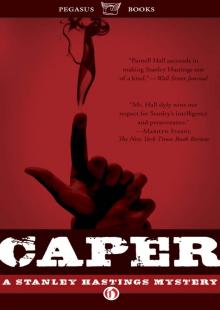 Caper
Caper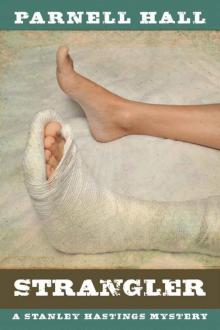 4 Strangler
4 Strangler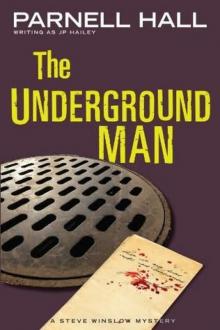 The Underground Man sw-3
The Underground Man sw-3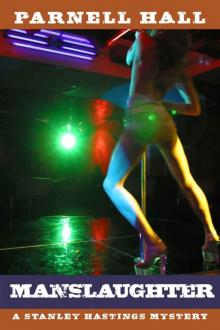 Manslaughter (Stanley Hastings Mystery, #15)
Manslaughter (Stanley Hastings Mystery, #15)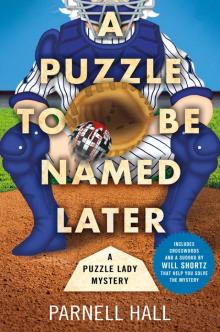 A Puzzle to Be Named Later--A Puzzle Lady Mystery
A Puzzle to Be Named Later--A Puzzle Lady Mystery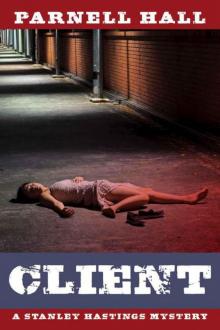 05-Client
05-Client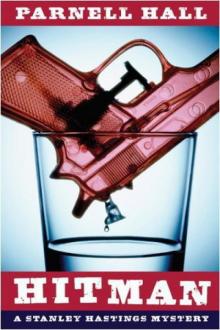 16 Hitman
16 Hitman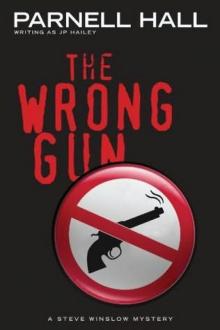 SW05 - The Wrong Gun
SW05 - The Wrong Gun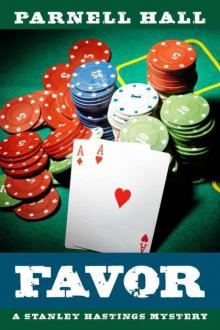 3 Favor
3 Favor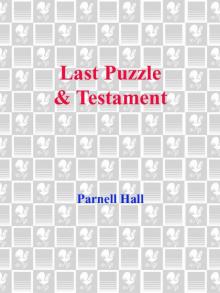 Last Puzzle & Testament
Last Puzzle & Testament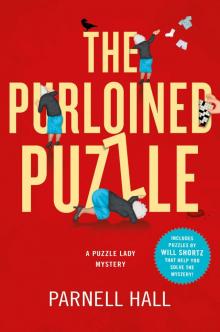 The Purloined Puzzle
The Purloined Puzzle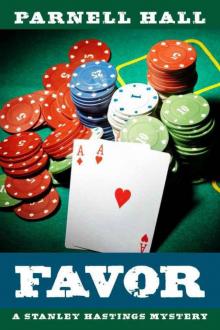 03-Favor
03-Favor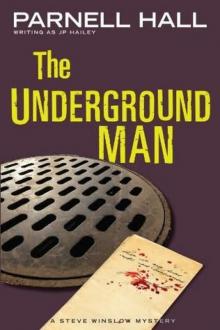 SW03 -The Underground Man
SW03 -The Underground Man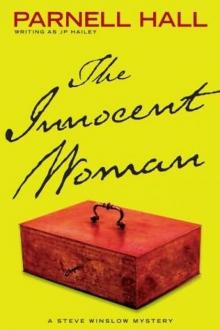 The Innocent Woman sw-6
The Innocent Woman sw-6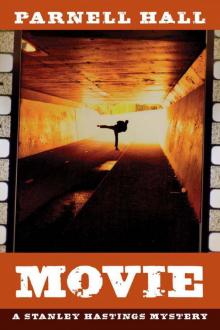 10 Movie
10 Movie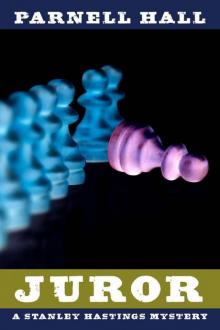 06-Juror
06-Juror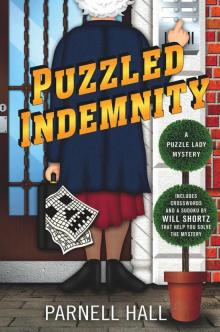 Puzzled Indemnity
Puzzled Indemnity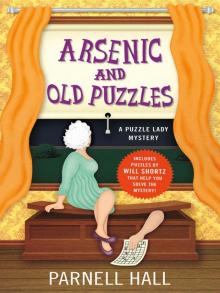 Arsenic and Old Puzzles
Arsenic and Old Puzzles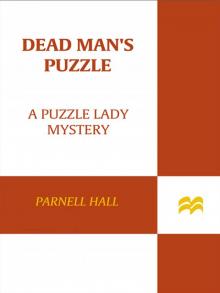 Dead Man's Puzzle
Dead Man's Puzzle Safari
Safari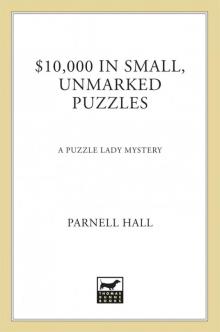 $10,000 in Small, Unmarked Puzzles
$10,000 in Small, Unmarked Puzzles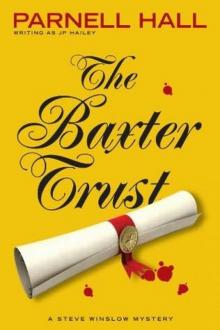 The Baxter Trust sw-1
The Baxter Trust sw-1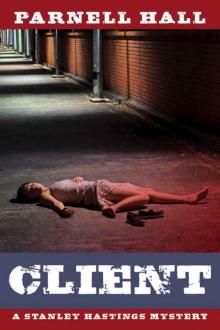 5 Client
5 Client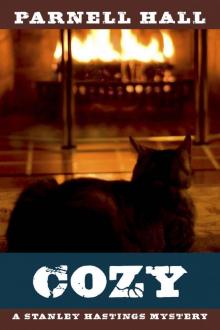 Cozy (Stanley Hastings Mystery, #14)
Cozy (Stanley Hastings Mystery, #14)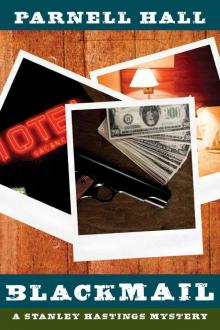 Blackmail
Blackmail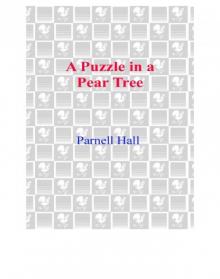 A Puzzle in a Pear Tree
A Puzzle in a Pear Tree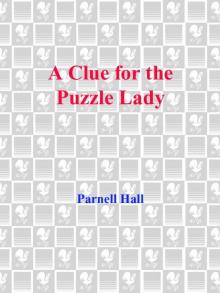 A Clue for the Puzzle Lady
A Clue for the Puzzle Lady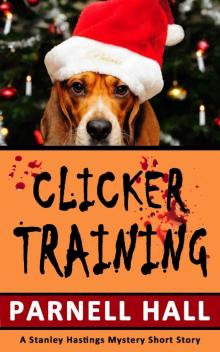 Clicker Training (Stanley Hastings Mystery, A Short Story)
Clicker Training (Stanley Hastings Mystery, A Short Story)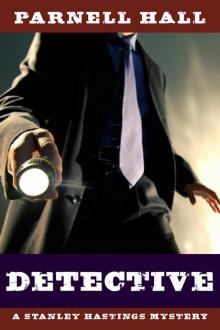 Detective (Stanley Hastings Mystery Book 1)
Detective (Stanley Hastings Mystery Book 1)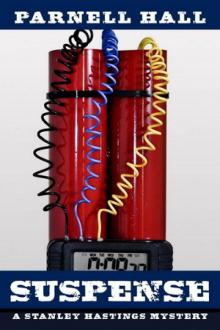 13 Suspense
13 Suspense